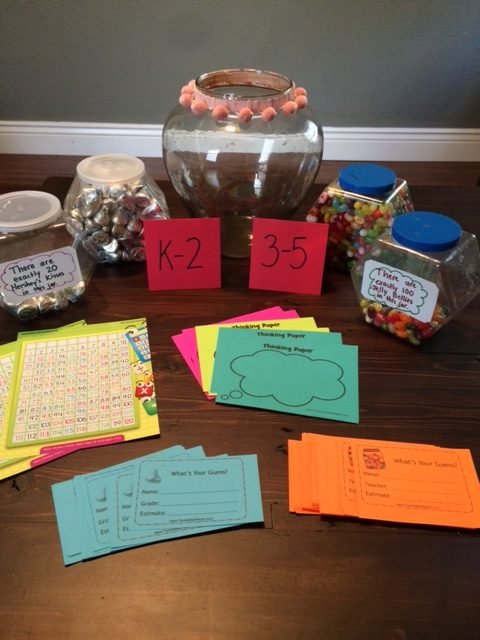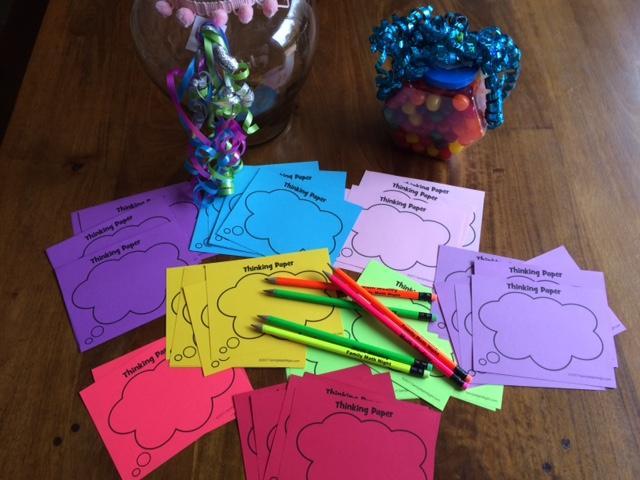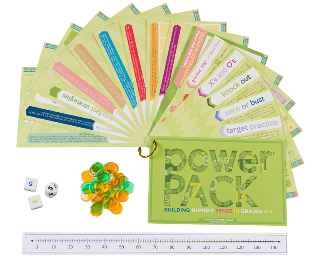What Do You Notice? Rectangular Arrays

Skills:
Primary students (K-2): shapes, counting, repeated addition, area
Intermediate students (3-5): classifying quadrilaterals, area model of multiplication, multiplication, prime, composite, and square numbers
It’s been on my TO DO list for a long time. Years, in fact. But I’ve finally checked it off and I’m thrilled with the results.
As many of you know, for each of my Family Math Night events I include a What Do You Notice? poster. These posters are designed to get kids and parents thinking about math on a deeper level. Although each poster has been included on our website, there has never been details…until now. I’ve taken each of the posters and written a thorough description of the math involved. I’ve also included the specific skills by grade span, K-2 and 3-5, and given several examples of student responses.
Read More Read More



